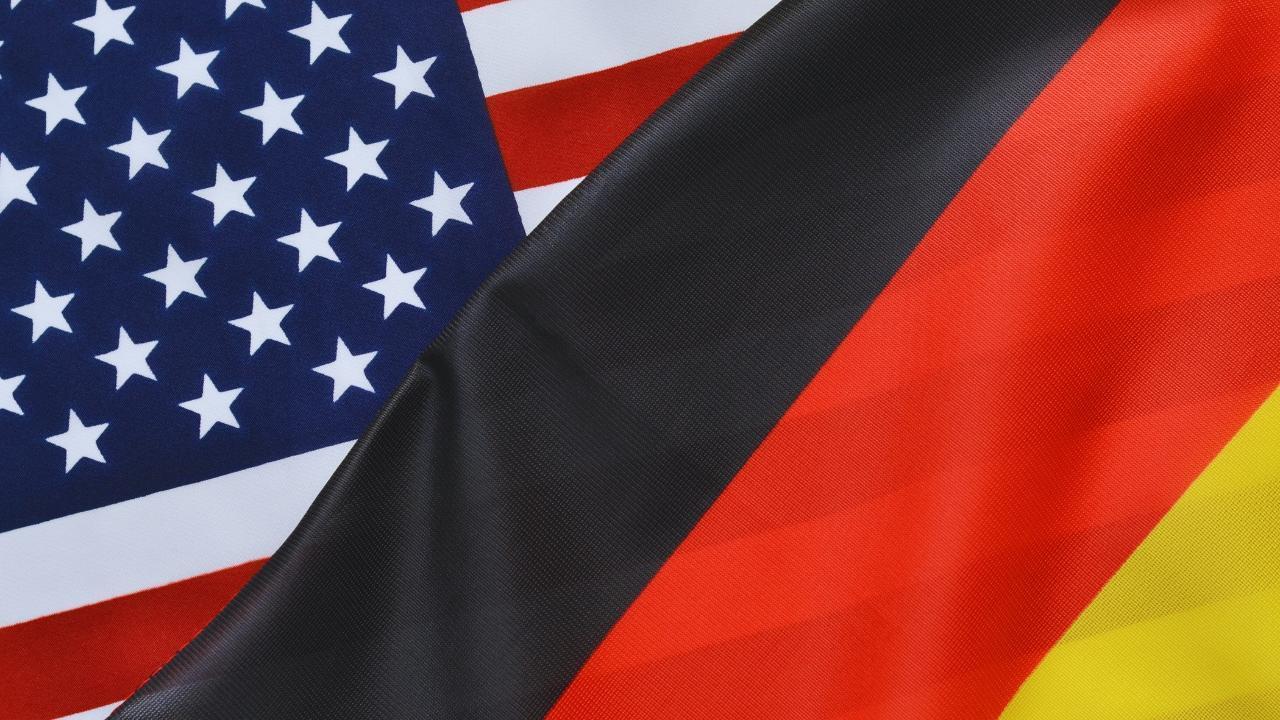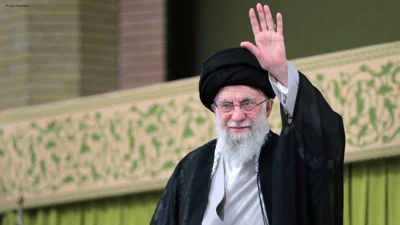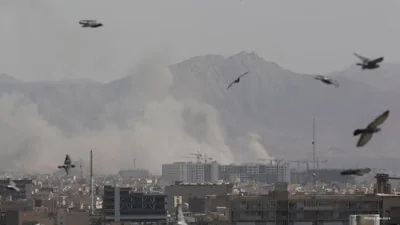
Post by : Anees Nasser
The dynamics between the Middle East and the United States have always been pivotal in shaping global geopolitics. From energy security to counterterrorism and economic cooperation, this partnership has undergone multiple phases of transformation. Today, the relationship stands at a crucial turning point, influenced by shifting power balances, technological advancements, climate priorities, and changing political agendas on both sides. The question many analysts ask is: What does the future hold for Middle East-U.S. relations?
The Middle East-U.S. relationship has its roots in the early 20th century, primarily centered on oil and security. The discovery of vast petroleum reserves in the Gulf states made the region an economic priority for Washington. Over time, strategic alliances were built, such as the U.S.-Saudi partnership, which became the cornerstone of regional stability and energy cooperation. The Cold War era saw the U.S. engaging deeply to counter Soviet influence, further strengthening its regional presence.
However, these ties were not without challenges. The Arab-Israeli conflict, the Iranian Revolution, and subsequent regional wars tested the strength and adaptability of this relationship. Despite occasional friction, the alliance endured, largely because of mutual dependence—energy needs for the U.S. and security assurances for Middle Eastern nations.
In recent years, the relationship has faced unprecedented changes. The U.S. energy independence achieved through shale oil reduced Washington's reliance on Middle Eastern crude. Meanwhile, countries like China and Russia have expanded their influence in the region, creating a multipolar dynamic that challenges U.S. dominance.
Key Middle Eastern nations, including Saudi Arabia, the UAE, and Qatar, are adopting more independent foreign policies. For instance, Saudi Arabia’s decision to restore diplomatic ties with Iran through Chinese mediation reflects this new multipolar reality. These shifts indicate that the U.S. can no longer assume uncontested influence in the region.
At the same time, security remains a shared concern. The rise of non-state actors, persistent instability in Yemen and Syria, and concerns over Iran’s nuclear ambitions necessitate continued collaboration. However, Washington’s reduced military footprint signals a shift toward diplomacy, economic partnerships, and technology-driven engagements rather than direct interventions.
For decades, oil was the linchpin of Middle East-U.S. relations. While the U.S. has reduced its dependency, the global energy market ensures that Middle Eastern oil remains strategically important. Fluctuations in oil prices affect the global economy, making regional stability a U.S. priority.
Beyond oil, there is a growing emphasis on economic diversification. Middle Eastern nations are investing heavily in non-oil sectors like technology, tourism, and renewable energy. Initiatives such as Saudi Arabia’s Vision 2030 and the UAE’s ambition to become a global tech hub align with U.S. interests in promoting sustainable development and innovation.
American companies continue to play a critical role in sectors like defense, healthcare, and finance across the Gulf states. Simultaneously, Middle Eastern investments in U.S. infrastructure, sports, and real estate have deepened economic interdependence. These trends suggest that economic ties will remain strong, albeit in new forms that go beyond hydrocarbons.
The future of Middle East-U.S. relations will also hinge on technological collaboration. The Gulf countries are rapidly embracing digital transformation, artificial intelligence, and cybersecurity initiatives. The U.S., as a global leader in technology, is well-positioned to be a key partner in this evolution.
Strategic collaborations are already underway, with American tech firms partnering with Middle Eastern governments to establish smart cities and AI-driven governance models. Cybersecurity has emerged as a critical domain, given the increasing cyber threats targeting infrastructure and financial systems. Cooperation in this area is expected to intensify, ensuring resilience against digital warfare and fostering innovation.
Security remains at the heart of Middle East-U.S. relations. While Washington has scaled down its military engagements, it continues to maintain significant bases in the region and provide advanced defense systems to allies. Joint military exercises and intelligence-sharing agreements underscore the continued relevance of this partnership.
However, the U.S. faces the challenge of balancing its support for Israel with its relationships with Arab states. The Abraham Accords marked a historic step toward regional normalization, but tensions over Palestinian statehood persist. Any future U.S. administration will need to navigate this delicate balance to maintain trust on both sides.
Counterterrorism cooperation is likely to remain a top priority, particularly as extremist groups seek to exploit political instability. Furthermore, the growing influence of Iran and its network of proxies presents a shared concern for Washington and Gulf states, ensuring that security collaboration remains indispensable.
Another dimension shaping future relations is climate diplomacy. The Middle East is acutely vulnerable to climate change impacts, such as extreme heat and water scarcity. At the same time, it remains a major fossil fuel exporter. The U.S. has an opportunity to support the region’s transition toward renewable energy through technology transfer, investment, and joint research.
The UAE hosting COP28 exemplifies the region’s commitment to sustainability. Collaborative projects in green hydrogen, solar power, and carbon capture technologies are likely to strengthen bilateral and multilateral ties. These efforts also align with global climate goals, providing common ground for U.S.-Middle East engagement.
While state-level cooperation is critical, public perception on both sides plays an equally important role. In the Middle East, there has been growing skepticism about U.S. policies, particularly in light of past military interventions. Conversely, in the U.S., public opinion has shifted toward prioritizing domestic issues over foreign entanglements.
Cultural diplomacy, education exchanges, and people-to-people initiatives can help bridge these gaps. Expanding student exchange programs, fostering tourism, and supporting cultural collaborations can enhance mutual understanding, reinforcing long-term stability in relations.
The future of Middle East-U.S. relations will likely be defined by pragmatism rather than ideological alignment. Both sides recognize the importance of maintaining ties, but they are also recalibrating their priorities. The U.S. seeks to focus more on Asia and domestic challenges, while Middle Eastern nations are pursuing diversified partnerships.
Energy, technology, security, and climate action will remain pillars of this partnership, though the frameworks may differ from the past. While Washington may no longer be the uncontested power in the region, its role as a strategic partner is far from over. Ultimately, the relationship will continue to evolve, reflecting a world that is increasingly multipolar and interconnected.
The information presented in this article is intended for general informational purposes only. While every effort has been made to ensure accuracy and reliability, the content may not reflect the latest updates or developments at the time of reading. Readers are advised to verify details independently before making any decisions based on the information provided. Middle East Bulletin bears no responsibility for any consequences arising from the use of this content.










Mattel Revives Masters of the Universe Action Figures Ahead of Film Launch
Mattel is reintroducing Masters of the Universe figures in line with its upcoming film, tapping into

China Executes 11 Members of Criminal Clan Linked to Myanmar Scam
China has executed 11 criminals associated with the Ming family, known for major scams and human tra

US Issues Alarm to Iran as Military Forces Deploy in Gulf Region
With a significant military presence in the Gulf, Trump urges Iran to negotiate a nuclear deal or fa

Copper Prices Reach Unprecedented Highs Amid Geopolitical Turmoil
Copper prices soar to all-time highs as geopolitical tensions and a weakening dollar boost investor

New Zealand Secures First Win Against India, Triumph by 50 Runs
New Zealand won the 4th T20I against India by 50 runs in Vizag. Despite Dube's impressive 65, India